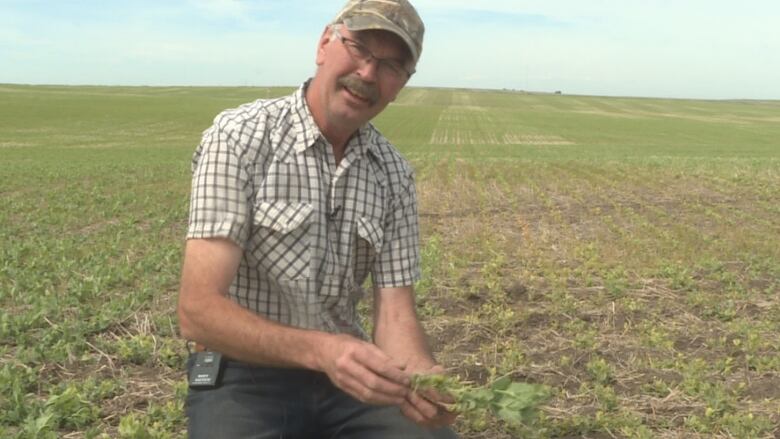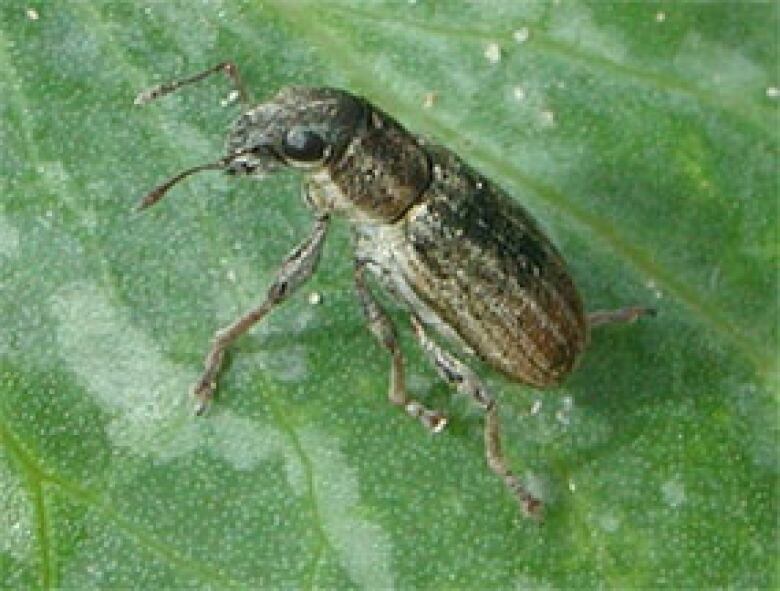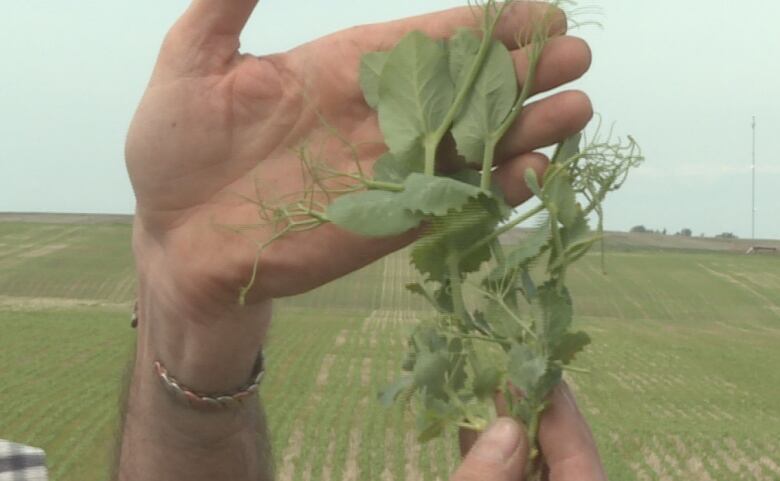Pea weevils munching northward in Alberta thanks to mild winter
Insects can reduce crop yields up to 17%, leaving signature mark in their wake

An insect that has an appetite for pea crops is spreading in Alberta.
Pea weevils are moving north, thanks to warmer temperatures and more availability of theirfavourite food.

Researchers say although the pestsbeen around for years, more farmers are seeing them farther north than ever before.
Farmers like Doug Sellare seeing the damage from pea weevils for themselves.
"This plant has been quite badly compromised," says Sell, surveying his crops.
"You'll see a very distinct half-moon chew-mark in the leaf."
Between 20 and 30 per cent of his 65 hectaresof peas are affected, Sell says.

Weevils chew on fava bean and field pea crops, according to research scientist Hector Carcamo.
Fava beans, also known as broad beans, areconsidered a pulse crop. They are tallplants with hollow stems andstrong tap roots.
Until this year, the weevils havemostly been spotted south of Highway 1. But they're moving north, Carcamo says.
"We had a very mild winter this past year and when we havemild winters then the proportion of insects that survive is a little bit higher."
More farmers are growing fava bean and field pea crops as well, Carcamo says.
The insects can reduce yields by up to 17 per cent. Carcamoadvises farmers to consider using an insecticide if 30 per cent of their crop is showing signs of damage.
With files from the CBC's Andrew Brown












_(720p).jpg)


 OFFICIAL HD MUSIC VIDEO.jpg)
.jpg)



























































































